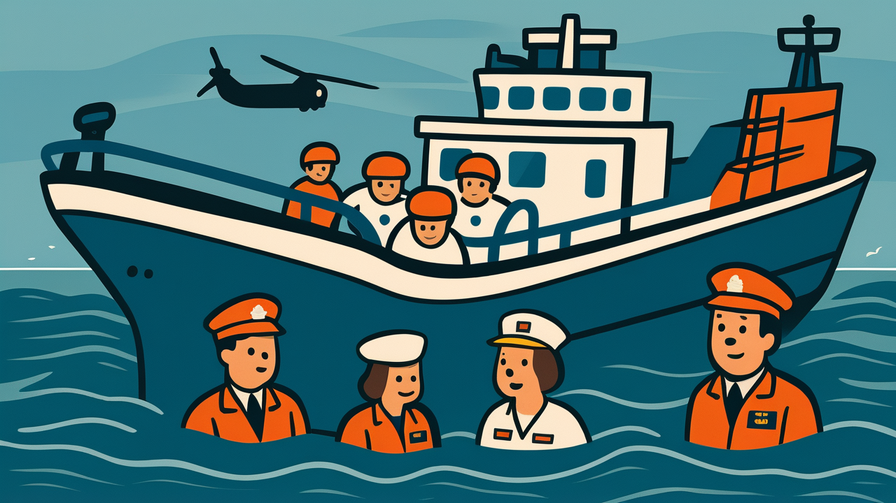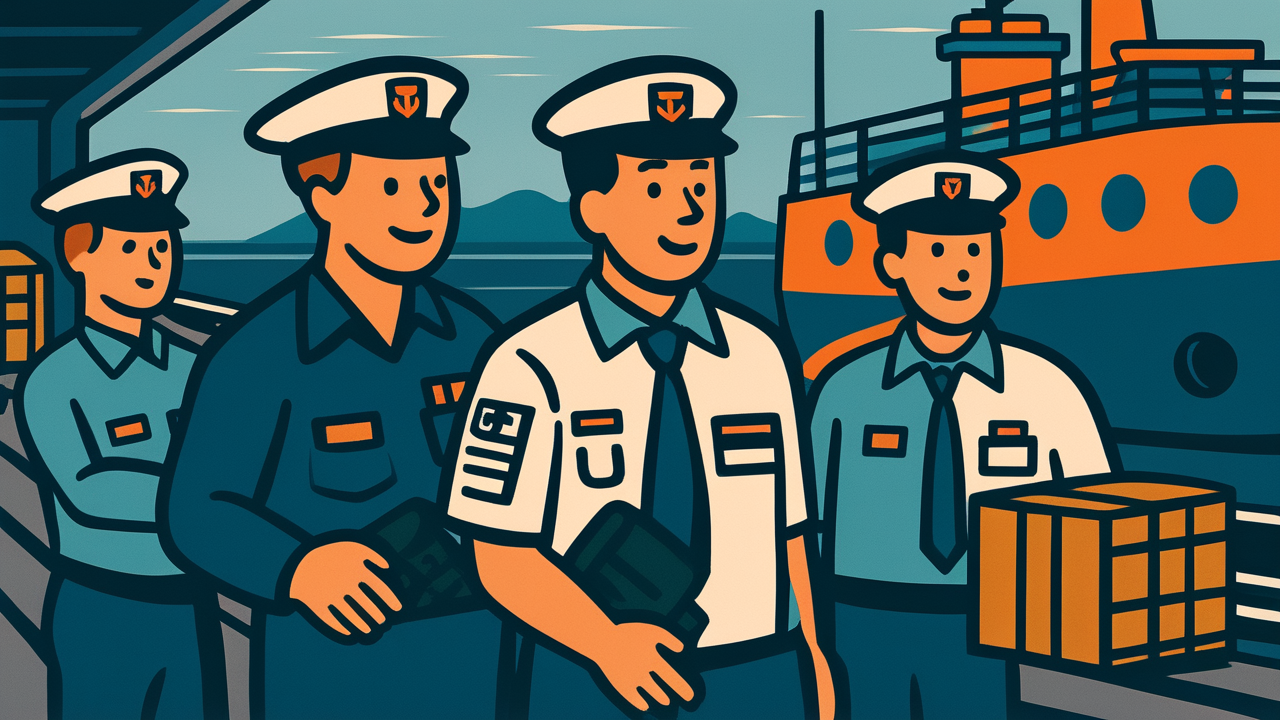[Disclaimer] This article is reconstructed based on information from external sources. Please verify the original source before referring to this content.
News Summary
The following content was published online. A translated summary is presented below. See the source for details.
The United States partnered with Ivory Coast and West African maritime authorities to host a major conference on ocean security in Abidjan on July 16-17, 2025. Maritime leaders from 25 countries gathered to combat illegal shipping activities by countries like Iran and North Korea. These nations use commercial ships to smuggle weapons materials and export banned goods like oil and coal to fund their military programs. The conference focused on sharing strategies to track suspicious ships, enforce international sanctions, and prevent rogue nations from exploiting global shipping networks. Participants included ship registries, port authorities, and international coalitions working to make ocean trade safer and more transparent.
Source: U.S. Department of State
Our Commentary
Background and Context

Imagine the ocean as a giant highway system where thousands of cargo ships carry everything from your smartphone to your sneakers around the world. Now imagine some ships are secretly carrying illegal weapons or banned materials – that’s the problem this conference tackled!
When the international community wants to stop a country from developing dangerous weapons, they often use sanctions – basically economic punishments that say “you can’t sell certain things or buy certain materials.” But some countries try to cheat by using fake ship names, turning off tracking devices, or transferring cargo between ships in the middle of the ocean.
Countries like Iran and North Korea have become experts at this maritime hide-and-seek game. They sell oil and coal secretly to fund their military programs, even though international law forbids it.
Expert Analysis
The conference in Ivory Coast represents a new approach to an old problem. Here’s how the smuggling schemes typically work:
• Ship identity fraud: Ships change names, flags, and registration to hide their true identity
• AIS manipulation: Vessels turn off their tracking systems or broadcast false locations
• Ship-to-ship transfers: Illegal cargo gets moved between ships in international waters to hide its origin
• Shell companies: Complex ownership structures make it hard to know who really controls a ship
The Registry Information Sharing Compact (RISC) mentioned in the article is like a giant shared database where countries can check if a ship has a suspicious history – think of it as a background check system for vessels.
Additional Data and Fact Reinforcement
The scale of maritime sanctions evasion is staggering:
• Iran exports an estimated 1-2 million barrels of oil daily through illicit channels, generating billions in revenue
• North Korea uses maritime smuggling to import 90% of its refined petroleum products
• Over 300 vessels are currently flagged for suspicious activities related to sanctions evasion
• The global shipping industry moves $14 trillion worth of goods annually, making oversight challenging
West Africa was chosen as the conference location because its waters have become a hotspot for illicit maritime activity, with many ships using the region’s ports to hide their true destinations.
Related News
This conference connects to broader efforts to secure global supply chains. Recent incidents have highlighted vulnerabilities:
• The Ever Given ship blocking the Suez Canal in 2021 showed how one vessel can disrupt global trade
• Houthi attacks on Red Sea shipping demonstrate how regional conflicts affect maritime security
• Discovery of “ghost ships” carrying North Korean coal to China despite UN sanctions
Technology is becoming crucial in this cat-and-mouse game. Satellite tracking, AI analysis, and blockchain are being deployed to make shipping more transparent and harder to manipulate.
Summary

The Abidjan conference represents a critical step in making global shipping safer and more transparent. By bringing together 25 countries, the event shows that maritime security is everyone’s business – what happens in distant oceans affects prices at your local store and security in your community.
For students interested in international relations, technology, or maritime careers, this field offers exciting opportunities. Future professionals might work on developing ship-tracking satellites, investigating financial crimes, or designing secure shipping systems.
The message is clear: in our interconnected world, stopping ocean smugglers requires global teamwork, cutting-edge technology, and constant vigilance. The seas that connect us all must be kept safe and lawful.
Public Reaction
Maritime industry professionals welcomed the increased cooperation. Ship captains and port workers often find themselves unknowingly involved in illegal schemes, so better information sharing helps protect honest operators.
Environmental groups also support these efforts, noting that sanctions-evading ships often dump waste illegally and operate without proper safety standards. One activist noted: “Ships hiding from sanctions enforcement are also hiding from environmental regulations.”
However, some developing nations worry about increased scrutiny affecting legitimate trade. They want assurances that new enforcement won’t create barriers for legal commerce.
Frequently Asked Questions
Q: How do countries know which ships are breaking sanctions?
A: They use satellite imagery, port inspections, financial tracking, and intelligence sharing. Ships that turn off transponders or make suspicious route changes often get investigated.
Q: Why should students care about maritime security?
A: About 90% of everything you buy travels by ship. When criminals use shipping for illegal activities, it can raise prices, fund dangerous groups, and threaten global security.
Q: What happens to ships caught breaking sanctions?
A: They can be seized, fined, or banned from ports. Their cargo may be confiscated, and owners can face criminal charges. Some ships end up abandoned when owners try to avoid prosecution.


